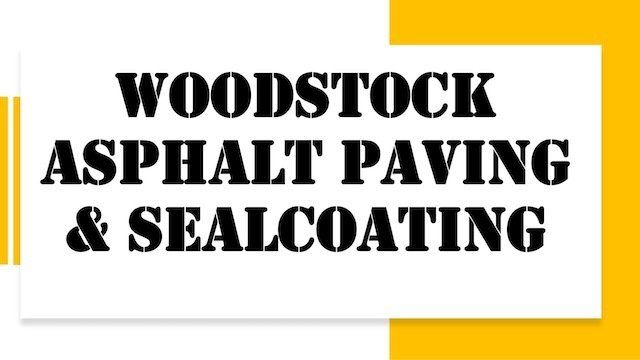Permeable Asphalt: Is It the Right Choice for Your Home?
When it comes to paving driveways, walkways, or patios, homeowners are often presented with endless options. One solution gaining popularity is permeable asphalt, particularly for its unique ability to help manage water runoff and reduce environmental impact. But is it the right choice for your home?
This blog will help you assess whether permeable asphalt is the best fit by exploring the benefits, comparing it to traditional options, and reviewing potential drawbacks. By the end, you'll better understand whether this sustainable choice aligns with your priorities.
What Is Permeable Asphalt?
Permeable asphalt, also known as porous or permeable pavement, is a specific type of asphalt designed to allow water to pass through. Unlike traditional asphalt, it features a porous structure that enables rainwater to flow through the surface and drain into the ground below.
The design typically includes three main layers:
The Permeable Asphalt Surface - A specially mixed top layer that is strong but porous.
The Stone Reservoir - Located immediately beneath the asphalt, this layer captures and temporarily stores water.
Filter Fabric or Base Layers - Acts as a barrier, filtering water before it re-enters the soil.
The result? Water runoff is significantly reduced, easing pressure on stormwater systems and minimizing the risk of flooding.
The Key Benefits of Permeable Asphalt
Choosing permeable asphalt offers several advantages that appeal to environmentally conscious homeowners and those who value durability and versatility.
1. Effective Drainage and Water Management
One of the most significant benefits of permeable asphalt is its ability to manage water. It promotes natural absorption of rainwater, which lowers the risk of pooling and pesky puddles on your property. For homes in areas with frequent rainfall or those susceptible to flash flooding, this can be a game-changer.
According to the EPA (Environmental Protection Agency), excessive stormwater runoff can lead to erosion, water contamination, and overloaded drainage systems. Permeable asphalt helps fix these issues, promoting groundwater replenishment and reducing the strain on municipal water infrastructure.
2. Eco-Friendly and Sustainable
Permeable asphalt supports sustainability by reducing stormwater runoff, which often carries pollutants like oil and debris into nearby lakes and rivers. By allowing rain to filter through and recharge the groundwater, it improves the overall health of local ecosystems. Additionally, many permeable asphalt mixes incorporate recycled materials, further reducing their carbon footprint.
3. Reduced Risk of Ice Formation
Traditional asphalt can trap water on its surface, creating dangerous icy patches in winter. Permeable asphalt, on the other hand, allows water to seep through, reducing the likelihood of treacherous ice forming after a rainfall or snowfall.
4. Durability for Residential Use
Despite its porous design, permeable asphalt is a durable option for residential applications. It can withstand the weight of vehicles, regular foot traffic, and weather variations when properly installed. With routine maintenance, it can last 20 years or more.
5. Aesthetically Pleasing
Modern permeable asphalt can offer a sleek, uniform look that complements various home styles. While it may look like ordinary asphalt, it performs in ways that make it far superior in functionality.
Key Drawbacks to Consider
While the advantages of permeable asphalt are impressive, there are some considerations to keep in mind before installing it.
1. Higher Initial Cost
Permeable asphalt typically costs more than traditional asphalt due to its specialized materials and installation process. While the eco-friendly benefits may offset this investment over time, upfront expenses can be a hurdle for budget-conscious homeowners.
2. Ongoing Maintenance
To keep permeable asphalt functioning properly, regular maintenance is necessary. Over time, debris, dirt, and sediment can clog the pores, reducing its effectiveness. Homeowners will need to occasionally vacuum the surface or use specialized equipment to clean out blockages.
3. Not Suitable for All Locations
If your property lacks adequate drainage or has heavy clay soil, permeable asphalt may not perform as intended. It’s also less suitable for areas that experience exceptionally heavy vehicle loads, such as commercial truck routes or parking lots.
4. Installation Challenges
Proper installation of permeable asphalt requires expertise and precision. Finding experienced contractors adept in porous pavement installations may be more difficult depending on your region.
Is Permeable Asphalt the Right Fit for Your Home?
To decide whether permeable asphalt is ideal for your home and lifestyle, ask yourself the following questions:
Does water drainage tend to be an issue on my property? If you’ve experienced flooding or pooling, permeable asphalt can be a practical solution.
Am I committed to sustainable and eco-conscious choices? With its environmental benefits, permeable asphalt should appeal to eco-minded homeowners.
Can I manage periodic maintenance? If you’re willing to spend time or resources to keep the surface clog-free, this paving option will perform at its best.
Do the benefits outweigh the initial cost for me? Permeable asphalt is an investment, but one that can pay off in terms of performance and sustainability.
Next Steps for Homeowners Interested in Permeable Asphalt
Permeable asphalt represents a smart and sustainable choice for many homeowners, especially those looking for eco-friendly alternatives that enhance property functionality. If water runoff, environmental impact, or modern aesthetics are top priorities, this versatile material is worth considering.
If you’re ready to move forward, your next steps should include:
Consulting with local paving experts to discuss design and installation options.
Performing a site assessment for soil drainage compatibility.
Researching maintenance tips to keep your surface in top condition.
Want to learn more about sustainable solutions for your home? Stay connected with us for expert tips and product recommendations to keep your property running efficiently.
We proudly serve the following cities: Acworth, Alpharetta, Atlanta, Austell, Brookhaven, Canton, Cartersville, Dallas, Decatur, Doraville, Douglasville, Duluth, Dunwoody, East Cobb, Hiram, Johns Creek, Kennesaw, Lilburn, Mableton, Marietta, Milton, Powder Springs, Roswell, Sandy Springs, Stone Mountain, Suwanee, Tucker, Villa Rica, and Woodstock Ga.
Woodstock Asphalt Paving & Sealcoating
Woodstock Ga 30188
404-724-8034


